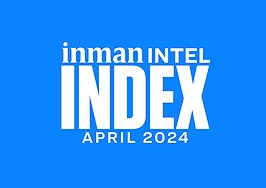Judge Andrea R. Wood’s certification of class in the Moerhl “bombshell lawsuit” potentially opens the door for millions of homeowners to be reimbursed for the commissions they paid to buyer agents between 2015 and 2020. Faced with a prospect of a judgment that could be billions of dollars, what will the defendants (NAR, Anywhere, Berkshire Hathaway Home Services, Keller Williams and RE/MAX ) do next — settle, go to trial and/or file for Chapter 11 bankruptcy?
In three previous columns (March 16 and March 19, 2019, and May 4, 2022) I outlined the numerous issues with both the Sitzer Burnett and the Moerhl complaints.
The Moerhl complaint states:
The Buyer Broker Commission Rule ensures that price competition among buyer brokers is restrained because the person retaining the buyer broker, the buyer, does not negotiate or pay his or her broker’s commission. In addition, the seller’s inflated commission offer cannot be reduced by buyers or their brokers, as Defendants also prohibit buyer brokers from making home purchase offers contingent on the reduction of the buyer broker commission.
The Moerhl complaint is based primarily upon the NAR’s Handbook on Multiple Listing Policy and NAR’s Code of Ethics without regard to the extensive amount of local, state and federal legislation and regulations that govern price fixing and commissions. Also, the term, “The Buyer Broker Commission Rule” was made up by the plaintiff’s attorneys and does not appear in either of those documents.
The plaintiffs’ attorneys ignore the various type of direct buyer representation
This includes Exclusive Buyer Agreements, fee-for-service models, one-party listing agreements for a single buyer, and various types of rebate models. Furthermore, builders and For-Sale-by-Owners typically pay the buyer’s agents directly as well. In fact, the Census Bureau currently projects there will be 643,000 new home sales in 2023; that’s 13.5 percent of NAR’s predicted sales of 4.78 million for 2023.
Challenges with the expert witness testimony and theories in the certification
The plaintiffs’ motion for class certification relies on the opinions of two experts, NYU economics professor Nicholas Economides and Harvard law professor Einer Elhauge.
- Elhauge compares the real estate industry to air travel and trading stocks. The comparison fails to address that purchasing an airline ticket or stock can be done with a few simple clicks. Closing a real estate transaction involves hundreds of pages of documents including contracts, title, loan documents, mandatory disclosures, agency, etc. It also involves the coordination of the agents, the buyers and sellers, title, mortgage professionals, appraisers, as well as the company or attorney responsible for closing the transaction and making sure the conveyance is properly recorded.
- Elhauge also states (and the judge agreed) with his application of “the undisputed economic principle that decreased demand results in lower prices.” This is not the case with commission rates. Increased demand (seller’s markets) leads to lower (discounted) prices and decreased sales and prices (buyer’s market) lead to increases in commission rates.
- Economides used his “Yardstick methodology” to evaluate the amount of damages U.S. sellers incurred based upon what sellers in other countries pay. Approximately 20 pages of the ruling is devoted to this discussion that claims that “Australia, the Netherlands and the United Kingdom, serve as appropriate comparator markets.”
Even though these countries have portals similar to Zillow and Realtor.com, according to RealEstateToday:
When Americans come to the U.K. (or Australia), they are amazed that there is no co-brokerage facility and that when they walk into an estate agency they can only have a meaningful discussion about a tiny sub-set of the available properties in the area.
The article also states U.K. agents are embracing the notion of having a multi-list system because they’re seeing higher offers on properties and that the sellers were willing to pay a higher fee for being able to reach a larger buyer pool through subagents.
In terms of Australia,
Depending upon the location in Australia, where up to 50 percent of the sales are conducted as auctions, the auction fees must also be added into the seller’s cost. These range from $6,500 to $8,000 in Melbourne and from $4,500 to $10,000 in in Sydney. This is on top of the commission, which ranges from 2.07 to 3.26 percent, marketing fees, conveyance fees, and GST.
While the Netherlands has exclusive representation with buyers and sellers each paying commissions to their own agents directly, according to Immo.bi:
There are no licensing laws/government regulation of the real estate industry in the Netherlands. The NVM, the association of estate agents and valuers, has its own regulation. This regulation consists of code of ethics, educational demands, tort law etc.
Also, Economides cherry-picked the data.
In Germany where the buyers paid the entire commission prior to December 23, 2021, Everstate reported that commission ranged from 5.95 percent in Hesse and Bremen to 7.14 percent in Berlin and Brandenburg before the change.
This is significantly higher than what sellers typically pay in the U.S.
Nevertheless, the arguments above have no bearing on class certification
Before a class action lawsuit can proceed, the class must be certified. Certification is based upon class action law, not real estate law. It is a procedural matter that simply allows others who have been impacted by this litigation to join as plaintiffs. Hence, the arguments above, which may be useful in settlement negotiations or at trial, have no bearing on the class being certified.
Next step: Motions for Summary Judgment
Once a class is certified, the next legal step is for one or both parties to make a motion for summary judgment.
A summary judgment is a court ordered ruling that no factual issues remain to be tried and therefore a cause of action or all causes of action in a complaint can be decided upon certain facts without trial. A summary judgment is based upon a motion by one of the parties that contends that all necessary factual issues are settled or so one-sided they need not be tried.
Given the numerous references in the Moerhl Certification ruling in Moerhl referencing issues that need to be addressed in more detail and/or at trial, a summary judgment ruling favorable to the defendants seems highly unlikely at this time.
Time for creative settlement negotiations?
If the court were to rule against the defendants in summary judgment, they now have three choices. They can proceed with the litigation with the goal of going to trial, discuss settling the case and/or file for Chapter 11 bankruptcy. According to Lissack,
Trial is very expensive and the risks to the defendants are huge. If they lose, they each or collectively are likely out of business. Note, “He who settles first settles best” (i.e., cheapest). The industry needs to adjust to a new reality: the process being challenged (seller is perceived to determine buy side fees) is on its deathbed. The DOJ has already filed a statement of interest and is likely to be a keen watcher of how these defendants co-ordinate their response (since such coordinated activity could give rise to yet another anti-trust action). The time has come for some creative settlement negotiations.
Settling rather than going to court
In January of 2023, Keller Williams opted to settle a class action lawsuit for $40 million that alleged that its agents violated the National Do Not Call Registry. In 2016, Coldwell Banker opted to settle the Bararsani v. Coldwell Banker class action litigation for $4.5 million that alleged Coldwell Banker had misclassified current and former affiliated sales associates as independent contractors when they should have been classified as employees.
Nevertheless, Carlton Fields found that the percentage of class action settlements in 2022 was the lowest in five years by a wide margin dropping from 73.1 percent in 2021 to 47 percent in 2021.

While this could bode well for settling, the catch is that the defendants in this case are both “individually and jointly liable.” According to Investopedia, this means that “all parties are equally responsible for carrying out the full terms of an agreement and that each party may be pursued for repayment of the entire amount due.”
Limit the size of the class as a way to reduce the amount of the settlement?
Coldwell Banker successfully employed this tactic in 2016 to bring the litigants in Bararsani to the table by having their agents agree to arbitrate disputes individually with the company as opposed to becoming part of the class.
In the pending Moerhl litigation, HomeServices is also seeking to limit the size of the class based upon those listing agreements that contained an arbitration provision. Wood’s ruling addressed limiting the size of the class in below:
In Defendants’ opposition to class certification, they state that HomeServices is willing to file a separate motion regarding their request to exclude from the class definitions the unnamed members whose listing agreements contained an arbitration provision. The Court believes that is the best course.
Thus, the Court will certify Plaintiffs’ Damages Class and Injunctive Relief Class, but if HomeServices wishes to narrow one or both classes, it may do so by separate motion. And, of course, the parties’ briefs in support of that motion should be responsive to the concerns laid out by the Court here.
The third option: Chapter 11 bankruptcy
According to Investopedia, a number of major companies have filed for bankruptcy and emerged stronger than ever. Examples include Ally Financial, Apple (which was saved from bankruptcy by Microsoft), Chrysler, General Motors, Marvel and Texaco.
In a chapter 11 bankruptcy, the bankrupt company is shielded from creditors while it attempts to reorganize and become profitable. Generally, this means the company will remain in business and continue operating. However, it may sell part of its assets or dissolve unprofitable arms of the business, resulting in layoffs for some employees.
In terms of how Chapter 11 bankruptcy impacts pending litigation,
Filing for bankruptcy can halt most civil lawsuits because of an automatic stay, which is issued the moment you file for bankruptcy. This injunction prevents creditors from continuing their collection activities, including their attempts to obtain a money judgment in a lawsuit.
Consequently, Chapter 11 bankruptcy:
Remains a highly effective means for companies to continue operating while paying off debts under renegotiated and reasonable terms. In the end, Chapter 11 can make a company stronger with greater financial controls in place to handle future challenges.
With the stakes higher than ever in Moerhl, the real estate industry is facing significant upheaval in terms of how listing and selling agents are compensated. As both Realtors and homeowners await the outcome, the defendants’ next moves — settlement, trial or bankruptcy, may very well reshape the industry’s landscape for many years to come.
Bernice Ross, president and CEO of BrokerageUP and RealEstateCoach.com, is a national speaker, author and trainer with more than 1,000 published articles. Learn about her broker/manager training programs designed for women, by women, at BrokerageUp.com and her new agent sales training at RealEstateCoach.com/newagent.













